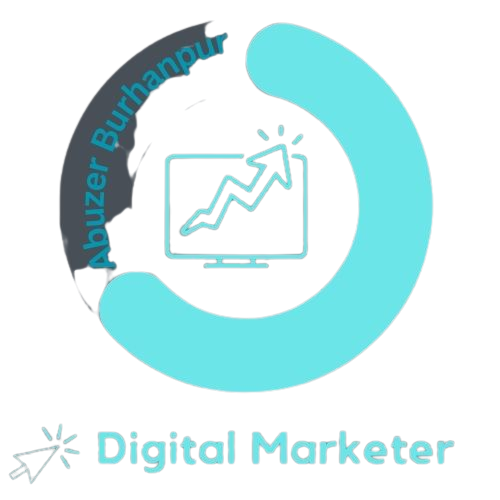
In today’s digital age, having a strong online presence is crucial for businesses of all sizes. The advancement of technology has paved the way for digital marketing, a powerful tool that can help businesses reach their target audience and achieve their goals. In this article, we will explore the basics of digital marketing, its components, how to develop a digital marketing strategy, and how to measure its success.
Understanding the Basics of Digital Marketing
Digital marketing refers to the use of digital channels and platforms to promote products, services, and brands. It encompasses various strategies and tactics that aim to attract, engage, and convert customers online. Unlike traditional marketing, digital marketing utilizes the internet, mobile devices, social media, and other digital technologies to connect with potential customers and create meaningful interactions.
Let’s dive deeper into the world of digital marketing and explore the different components that make up this dynamic field.
Defining Digital Marketing
Digital marketing consists of a wide range of activities, including search engine optimization (SEO), social media marketing, content marketing, email marketing, and more. These different components work together to create a comprehensive digital marketing strategy that can help businesses achieve their objectives.
Search engine optimization (SEO) is the process of optimizing a website to improve its visibility and ranking on search engine results pages. It involves various techniques such as keyword research, on-page optimization, link building, and technical optimization.
Social media marketing involves using social media platforms like Facebook, Instagram, Twitter, and LinkedIn to promote products and engage with customers. It includes activities such as creating and sharing content, running ads, and interacting with followers.
Content marketing focuses on creating and distributing valuable, relevant, and consistent content to attract and retain a clearly defined audience. It includes blog posts, articles, videos, infographics, and more.
Email marketing involves sending targeted emails to a group of individuals who have expressed interest in a company’s products or services. It is an effective way to nurture leads, build relationships, and drive conversions.
These are just a few examples of the many components that make up digital marketing. Each component plays a crucial role in reaching and engaging with the target audience.
The Importance of Digital Marketing in Today’s Business Landscape
In today’s highly competitive business landscape, having a strong digital marketing presence is more important than ever. With the majority of consumers turning to the Internet to research and make purchasing decisions, businesses that fail to leverage digital marketing are at a significant disadvantage.
A strong digital marketing strategy allows businesses to increase brand awareness and visibility. By utilizing various digital channels and platforms, businesses can reach a wider audience and make their brand more recognizable.
Furthermore, digital marketing enables businesses to generate leads and drive website traffic. Through targeted advertising, engaging content, and effective SEO strategies, businesses can attract potential customers and direct them to their websites.
Once potential customers are on a business’s website, digital marketing helps in converting them into paying customers. By implementing conversion optimization techniques, businesses can create a seamless user experience and guide visitors towards making a purchase or taking a desired action.
Moreover, digital marketing provides businesses with valuable data and insights. Through analytics tools, businesses can track and measure the performance of their digital marketing campaigns. This data can be used to make informed decisions, optimize strategies, and drive better results.
In conclusion, digital marketing is a powerful tool that can help businesses thrive in today’s digital age. By understanding the basics of digital marketing and implementing effective strategies, businesses can connect with their target audience, build brand loyalty, and drive growth.
Components of Digital Marketing
Digital marketing encompasses various components that work together to create a comprehensive strategy. Let’s explore some of the key components:
Search Engine Optimization (SEO)
SEO is the process of optimizing a website to improve its visibility and ranking on search engine result pages. By optimizing the content and structure of your website, you can increase organic traffic, generate leads, and improve your online presence.
When it comes to SEO, there are several techniques that can be employed. One important aspect is keyword research, where you identify the most relevant and high-ranking keywords for your industry. By strategically incorporating these keywords into your website’s content, meta tags, and headings, you can increase your chances of appearing in search results when users search for those keywords.
In addition to keyword optimization, SEO also involves improving the technical aspects of your website. This includes optimizing page load speed, ensuring mobile-friendliness, and implementing structured data markup to enhance search engine understanding of your content.
Social Media Marketing
Social media marketing involves using social media platforms like Facebook, Twitter, Instagram, and LinkedIn to promote products and engage with customers. It allows businesses to build a loyal following, share valuable content, and drive traffic to their website.
When it comes to social media marketing, it’s important to have a well-defined strategy. This includes identifying the platforms that are most relevant to your target audience and creating engaging and shareable content that aligns with your brand’s values and goals.
In addition to organic social media marketing, businesses can also leverage paid advertising options on these platforms. This allows for targeted reach and the ability to reach a wider audience beyond your existing followers.
Content Marketing
Content marketing is the creation and distribution of valuable and relevant content to attract and retain a target audience. By providing valuable information through blog posts, articles, videos, and infographics, businesses can establish themselves as industry leaders and build trust with their audience.
When it comes to content marketing, it’s important to have a well-defined content strategy. This includes identifying the topics and formats that resonate with your target audience, conducting keyword research to optimize your content for search engines, and creating a content calendar to ensure consistent and timely delivery of content.
In addition to creating valuable content, businesses can also leverage content distribution channels such as guest blogging, influencer collaborations, and syndication platforms to reach a wider audience and increase brand visibility.
Email Marketing
Email marketing involves sending targeted emails to a list of subscribers. It is an effective way to nurture leads, build relationships with customers, and drive conversions. With personalized and engaging content, businesses can keep their audience informed and encourage repeat business.
When it comes to email marketing, it’s important to have a well-segmented and targeted email list. This allows for personalized messaging and ensures that your emails are relevant to the recipient’s interests and needs.
In addition to personalized content, businesses can also leverage automation tools to streamline their email marketing efforts. This includes setting up automated email sequences based on user behavior, such as abandoned cart reminders or post-purchase follow-ups.
By combining these components of digital marketing, businesses can create a comprehensive strategy that maximizes their online presence, drives traffic, and generates leads. It’s important to continuously monitor and analyze the performance of each component to make data-driven decisions and optimize your digital marketing efforts.
Developing a Digital Marketing Strategy
To harness the power of digital marketing, it is essential to develop a well-defined strategy. Let’s explore the key steps involved:
Setting Your Business Goals
Before diving into digital marketing, it’s crucial to establish clear and measurable goals. Whether it’s increasing brand awareness, generating leads, or driving sales, having specific goals allows you to create targeted campaigns and track your progress.
Setting your business goals is like plotting a course on a map. It helps you define where you want to go and how you plan to get there. By identifying your goals, you can create a roadmap that outlines the steps you need to take to achieve success.
For example, if your goal is to increase brand awareness, you might focus on creating engaging social media content, running targeted ad campaigns, and collaborating with influencers in your industry. On the other hand, if your goal is to generate leads, you might invest in email marketing campaigns, optimize your website for lead capture, and offer valuable resources in exchange for contact information.
Identifying Your Target Audience
Understanding your target audience is vital for creating effective digital marketing campaigns. By defining your target demographic, interests, and pain points, you can tailor your messaging and content to resonate with your audience and increase engagement.
Imagine you are a travel agency specializing in adventure vacations. Your target audience might consist of adventure enthusiasts, outdoor enthusiasts, and thrill-seekers. By understanding their interests and pain points, you can create content that speaks directly to them.
For example, you might create blog posts about the top adventure destinations, share videos of thrilling activities like skydiving and bungee jumping, and offer exclusive discounts for adrenaline-pumping experiences. This targeted approach will not only attract your ideal customers but also build a loyal community of adventure seekers who are more likely to engage with your brand.
Choosing the Right Digital Marketing Channels
With numerous digital marketing channels available, it’s important to select the ones that align with your goals and target audience. Whether it’s social media, email marketing, or search engine advertising, choosing the right channels will maximize your reach and improve campaign effectiveness.
Each digital marketing channel has its own unique strengths and characteristics. Social media platforms like Facebook, Instagram, and Twitter are great for building brand awareness and engaging with your audience in a more casual and interactive way. Email marketing allows you to nurture leads and build relationships with your subscribers, while search engine advertising can help you reach potential customers who are actively searching for products or services like yours.
When choosing the right digital marketing channels, it’s important to consider factors such as your target audience’s preferences, the nature of your business, and your budget. By selecting the channels that best fit your goals and resources, you can optimize your marketing efforts and achieve better results.
Remember, developing a digital marketing strategy is an ongoing process. As technology and consumer behavior evolve, it’s important to stay updated and adapt your strategy accordingly. By continuously monitoring and analyzing your campaigns, you can make data-driven decisions and optimize your digital marketing efforts for maximum impact.
Measuring the Success of Your Digital Marketing Efforts
To ensure the effectiveness of your digital marketing strategy and optimize your campaigns, it’s essential to measure your success. Let’s explore some key aspects of measuring digital marketing success.
Key Performance Indicators (KPIs) in Digital Marketing
Key performance indicators, or KPIs, are measurable metrics used to track the performance of your digital marketing efforts. Whether it’s website traffic, conversion rate, or engagement level, KPIs provide valuable insights into the effectiveness of your campaigns and help you make data-driven decisions.
Tools for Tracking Digital Marketing Success
There are numerous tools available that can help you track and analyze your digital marketing efforts. Google Analytics, for example, allows you to monitor website traffic, user behavior, and campaign performance. By leveraging these tools, you can gain valuable insights and make informed decisions to optimize your digital marketing strategy.
In conclusion, digital marketing is a powerful tool that can help businesses unlock their full potential. By understanding the basics of digital marketing, leveraging its components, developing a comprehensive strategy, and measuring its success, businesses can effectively reach their target audience and achieve their goals in today’s digital landscape.
